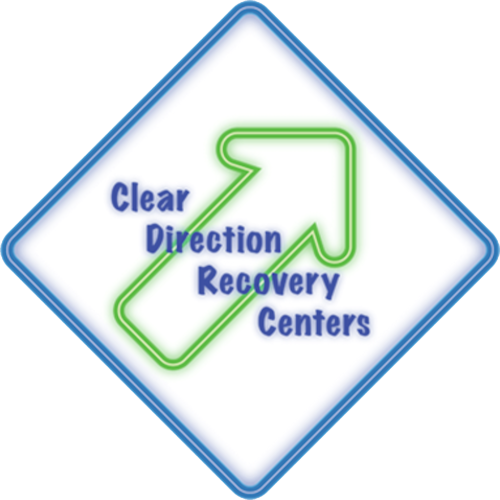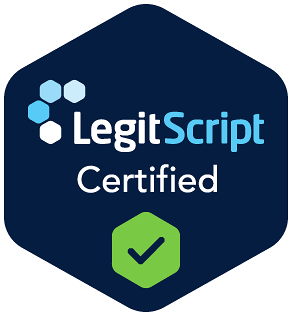Therapy for Addiction at Clear Direction Recovery Center
At Clear Direction Recovery Center in New Jersey, we believe that therapy plays a crucial role in addiction treatment. We offer a comprehensive range of therapy options designed to support individuals on their journey to recovery. Our therapy programs encompass individual therapy, group therapy, family therapy, cognitive-behavioral therapy (CBT), holistic therapy, and medication-assisted therapy. These therapeutic approaches are tailored to address the unique needs of each individual, promoting healing, personal growth, and lasting recovery.

Therapy is a cornerstone of addiction treatment as it addresses the underlying factors contributing to substance abuse and supports individuals in developing healthier coping mechanisms. It provides a safe and supportive environment where individuals can explore the root causes of their addiction, gain insight into their patterns of behavior, and learn valuable skills to navigate life without relying on substances.
Through therapy, individuals are empowered to:
Therapy encourages self-reflection and awareness, allowing individuals to better understand the factors that contribute to their addictive behaviors. It helps uncover the emotional triggers, past traumas, or underlying mental health issues that may have fueled the substance abuse.
Therapy equips individuals with effective coping strategies to deal with cravings, triggers, and stressful situations without turning to substances. They learn healthier ways to manage emotions, handle stress, and overcome challenges, promoting long-term recovery.
Therapy provides a supportive environment where individuals can connect with others facing similar struggles. Group therapy and family therapy, in particular, foster a sense of community, reduce isolation, and create a network of support that extends beyond the treatment setting.
Therapy Options at Clear Direction Recovery Center in New Jersey
Individual therapy involves one-on-one sessions between the individual and a licensed therapist. This therapeutic approach allows for a personalized focus on the individual’s unique challenges, goals, and underlying issues. Through a variety of evidence-based modalities, such as cognitive-behavioral therapy (CBT), dialectical behavior therapy (DBT), and motivational interviewing, individuals work closely with their therapist to address specific concerns, gain insight, and develop strategies for recovery.
Group therapy brings individuals together in a supportive setting to share experiences, provide mutual support, and learn from one another. Led by a skilled therapist, group therapy fosters a sense of community and belonging, reduces feelings of isolation, and encourages interpersonal growth. It provides a space for individuals to practice healthy communication, receive feedback, and develop essential social skills for sustained recovery.
Family therapy involves the participation of family members or significant others in the therapeutic process. It aims to repair and strengthen relationships, rebuild trust, and educate families about addiction and recovery. Family therapy provides a platform for open communication, healing past wounds, and developing a supportive family system that contributes to the individual’s recovery journey.
CBT is a widely recognized and evidence-based therapy approach used in addiction treatment. It focuses on identifying and modifying negative thought patterns and behaviors that contribute to substance abuse. Through CBT, individuals learn to challenge self-defeating beliefs, develop healthier coping strategies, and adopt positive behavioral changes that support recovery.
Holistic therapy approaches at Clear Direction Recovery Center recognize the importance of addressing the mind, body, and spirit in addiction recovery. These therapies, such as yoga, meditation, art therapy, and mindfulness practices, complement other treatment modalities. Holistic therapies promote self-care, stress reduction, emotional healing, and overall well-being.
Medication-assisted therapy (MAT) combines FDA-approved medications with counseling and behavioral therapies to address substance abuse disorders effectively. Medications used in MAT, such as buprenorphine, methadone, or naltrexone, can help alleviate cravings, reduce withdrawal symptoms, and support individuals in their recovery process. Medication-assisted therapy in New Jersey is often integrated with counseling and therapy to provide a comprehensive approach that addresses both the physical and psychological aspects of addiction.
Contact Clear Direction Today!
Why Wait? Find The Help You Need By Reaching Out To Us Today! Our Admissions Team Is Standing By.
Goals of Therapy During Addiction Treatment
Therapy during addiction treatment encompasses several key goals that contribute to the overall recovery process:
Therapy helps individuals explore the underlying factors that contribute to their substance abuse, such as trauma, mental health disorders, or unhealthy coping mechanisms. By addressing these root causes, individuals can develop a deeper understanding of themselves and work towards resolving these issues in a healthy and sustainable manner.
Therapy equips individuals with essential skills to recognize triggers, manage cravings, and prevent relapse. Through therapy, individuals learn strategies to cope with high-risk situations, develop healthy coping mechanisms, and create personalized relapse prevention plans.
Many individuals turn to substances as a way to cope with difficult emotions. Therapy helps individuals develop healthier ways to regulate and express their emotions, reducing the reliance on substances for emotional relief. Learning effective emotional regulation skills supports long-term recovery and fosters improved overall well-being.
Addiction can strain relationships and erode trust. Therapy, such as family therapy or couples therapy, provides a platform for individuals to rebuild and repair relationships affected by substance abuse. It focuses on improving communication, fostering understanding, and establishing healthy boundaries, ultimately strengthening support systems for sustained recovery.
Therapy empowers individuals to take control of their lives and recovery journey. It helps individuals develop self-awareness, build self-esteem, and cultivate resilience, enabling them to overcome challenges and maintain long-term sobriety.
Therapy supports personal growth by encouraging individuals to explore their values, goals, and aspirations beyond addiction. It helps individuals develop a sense of purpose, rediscover their passions, and rebuild a fulfilling life in recovery. Through therapy, individuals can experience improved overall well-being, including physical, emotional, and spiritual aspects of their lives.
At Clear Direction Recovery Center, our dedicated team of licensed therapists and counselors collaborates closely with individuals to develop personalized treatment plans that align with their specific needs and goals. We emphasize the importance of therapy as an integral component of addiction treatment, providing a supportive and nurturing environment where individuals can heal, grow, and thrive.
Contact Clear Direction Recovery to Learn More About Our Therapy Options
Therapy is a fundamental component of addiction treatment at Clear Direction Recovery Center in New Jersey. Through individual therapy, group therapy, family therapy, cognitive-behavioral therapy, holistic therapy, and medication-assisted therapy, we provide individuals with a comprehensive range of therapeutic options to support their recovery journey. Therapy empowers individuals to address underlying issues, develop healthier coping strategies, rebuild relationships, and foster personal growth. By emphasizing the goals of therapy, we strive to help individuals overcome substance abuse and achieve lasting recovery, guiding them toward a brighter and more fulfilling future.


